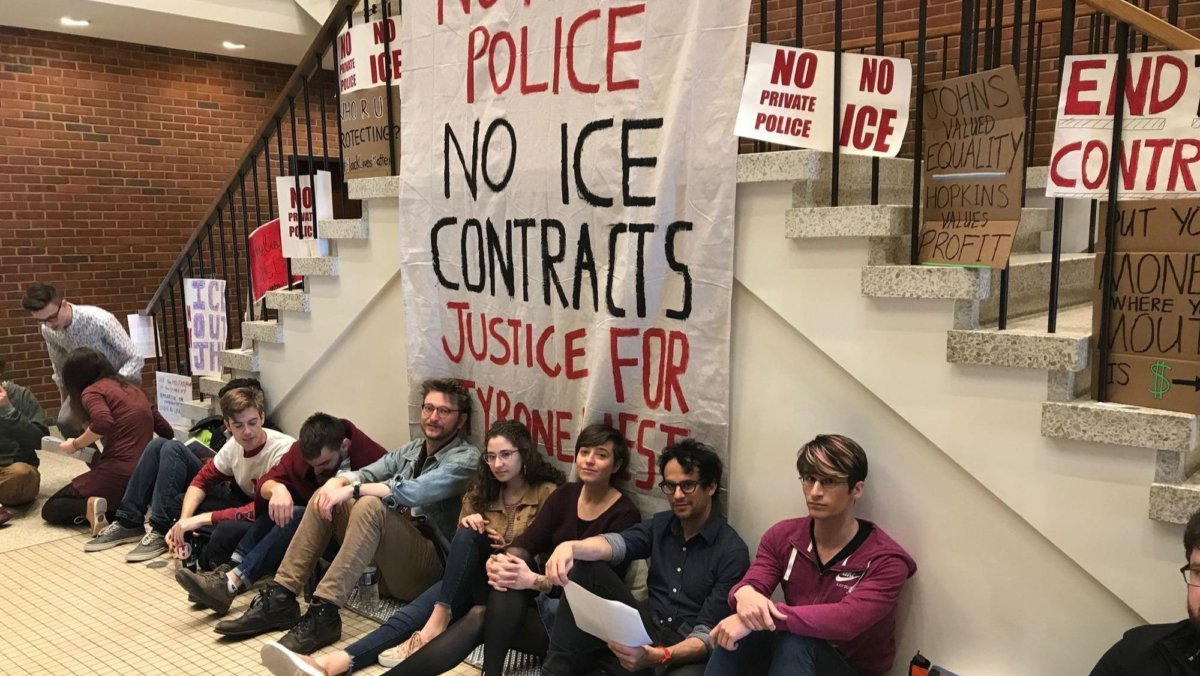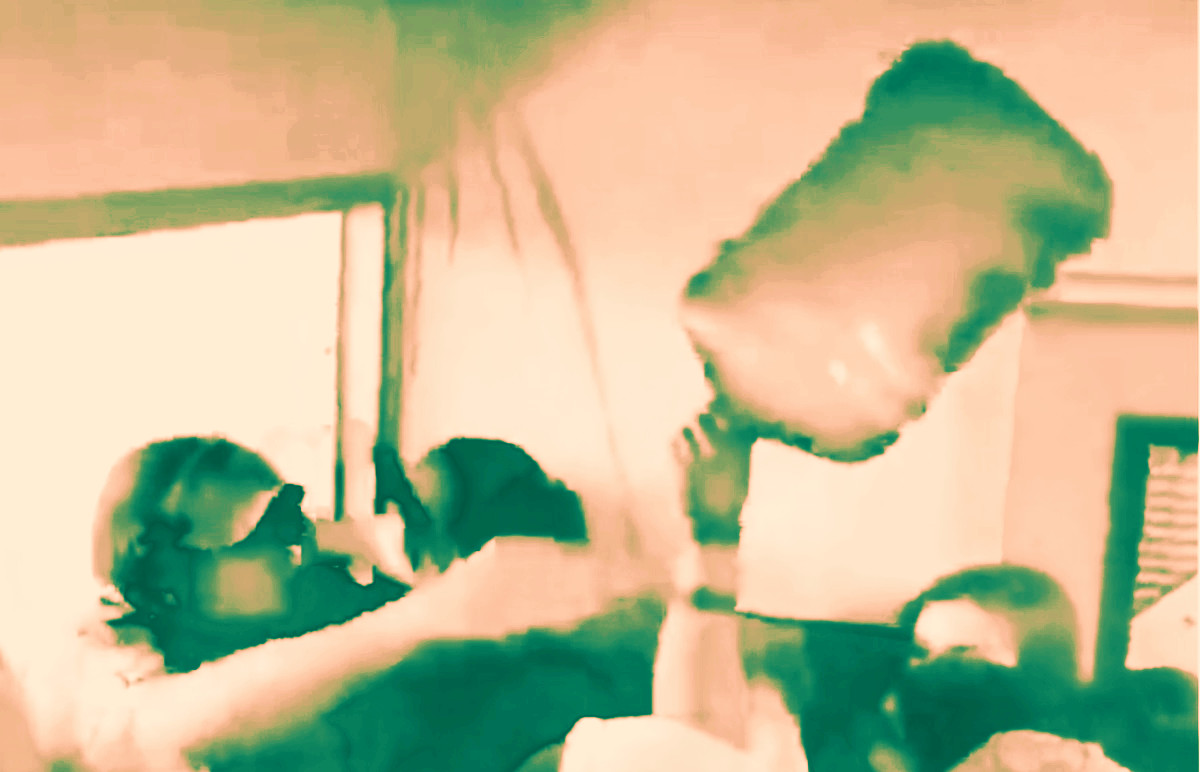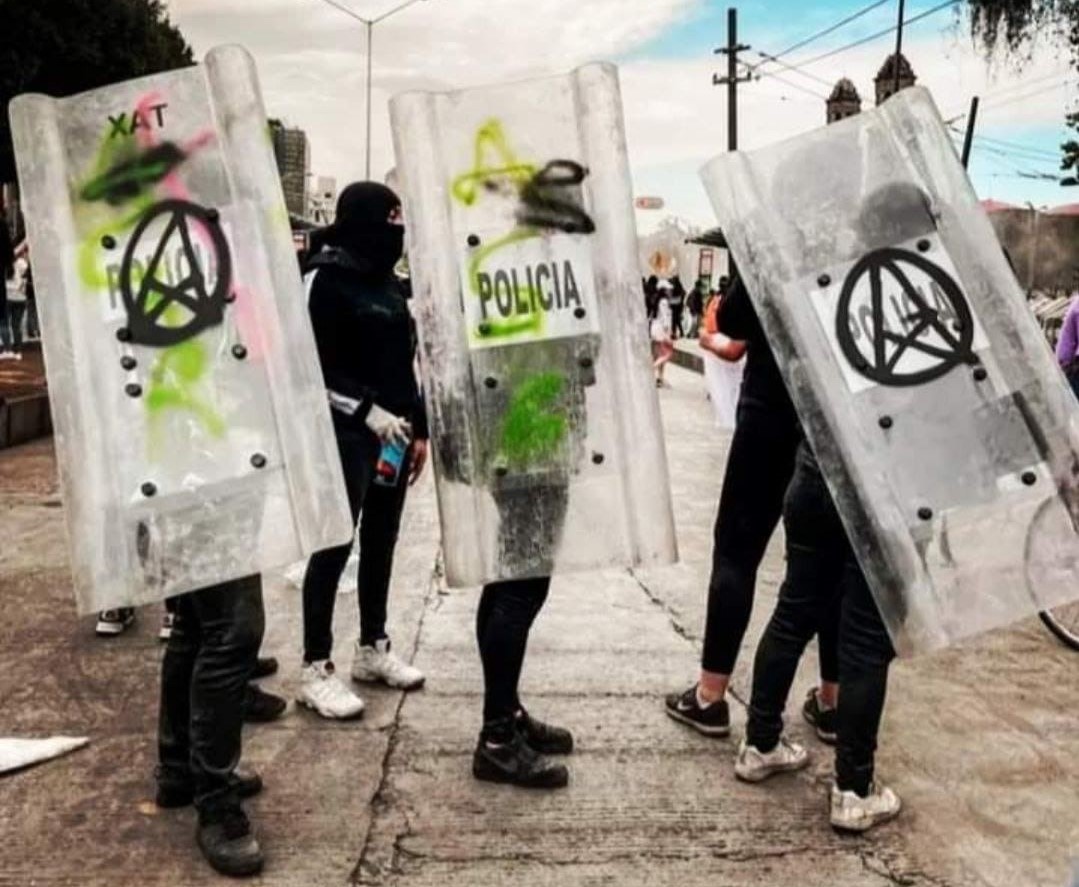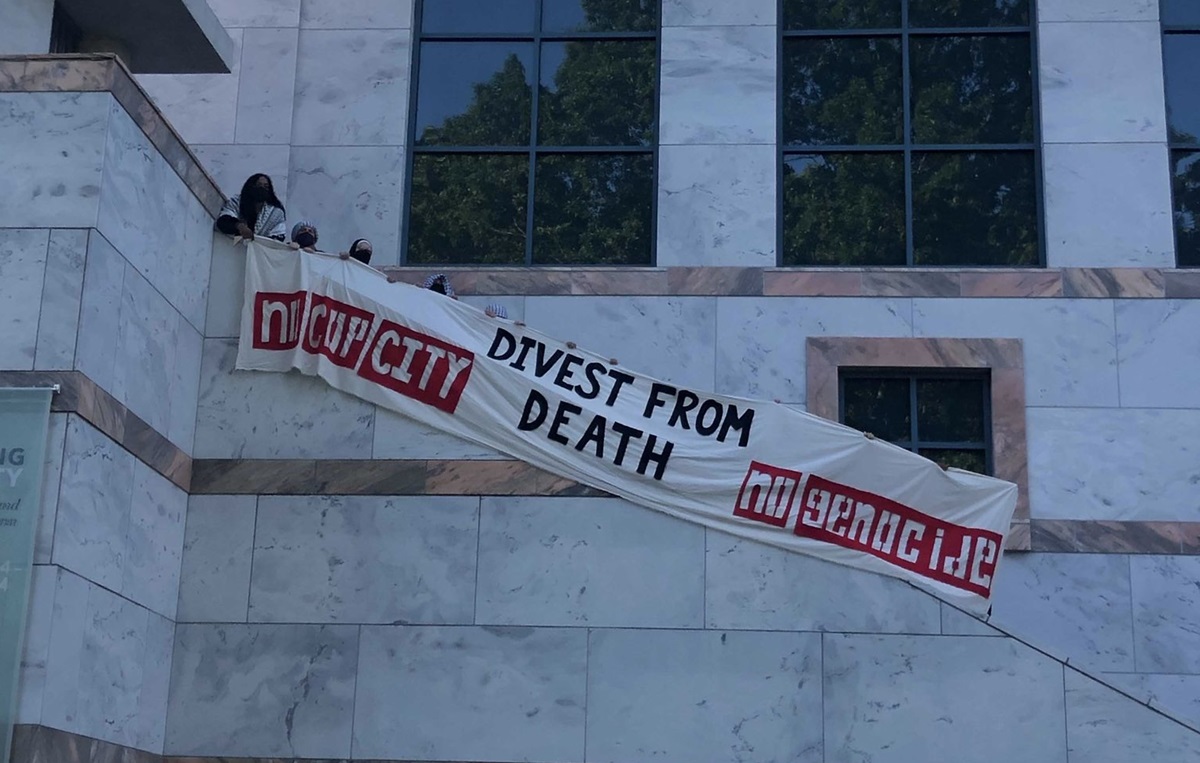Filed under: Education, Immigration, Interviews, Northeast, White Supremacy

The Radical Education Department interviews students involved in the occupation against ICE contracts at John Hopkins University.
Campus struggles in the US have surged recently: at Johns Hopkins, at Yale, at Evergreen State, at the University of Pennsylvania, and well beyond.
The summer holiday is approaching. Summer is a chance to take stock—to evaluate and prepare to kick off the next round of struggles in the fall.
This is Part 2 of the Campus Power Project: an ongoing series of interviews, articles, and podcasts. (For Part 1 of the Campus Power Project, click here.)
The CPP aims to help take stock of our campus struggles for radical, bottom-up, antiauthoritarian power on and across college campuses, so that we can make those struggles more powerful in the coming years. The focus is on concrete organizing lessons we can learn from comrades in revolt.
The media series is only one half of the Campus Power Project. The other half aims to help build up—across Philadelphia and beyond—lines of communication and coordination among radical campus struggles.
If you are working with leftist campus organizations and want to get involved, please reach out to us!
FB: @radicaleducation
Twitter: @RedRadEd
radicaleducationdepartment.com
Intro to the Interview
The sit-in at Garland Hall at Johns Hopkins University began April 3rd. It was part of the struggle against the university forming its own private police force; against university contracts with ICE; and for justice for Tyrone West and other victims of police murder.
The university’s response was savage. Early morning May 8th, it called in 100 heavily-armed members of a militarized police force to attack 6 occupiers. The JHU Sit-In called this “a haunting premonition of what a private police force would look like on this campus: context and nuance lost, replaced with reckless lust for physical control and weaponized fear.” The struggle continues beyond the occupation,
On day 20 of the sit-in, Jason Koslowski of RED interviewed Dre, a graduate student and one of the organizers of the JHU Sit-in with Students Against Private Police. Dre offered their perspective on some of the organizing so far.
The questions were developed collaboratively in the RED collective.
To support the struggle at JHU, see the following links from the JHU Sit-In Facebook page:
- For alumni: a pledge to withhold donations: https://forms.gle/F6hgWPwHFdccF6g67
- For academics: a statement of solidarity with the protesters:
https://www.change.org/p/johns-hopkins-university-board-of-…
To get connected and to learn more, search for these groups on Facebook:
- JHU Sit In (@theGarlandSitIn)
- Justice for Tyrone West (@justicefortyronewest)
- Students Against Private Police (@NoPrivatePoliceJHU)
- Hopkins Coalition Against ICE (@ICEoutJHU)
Can you give a little background on the struggle? When did it start, what’s been going on?
Our organizing really started a little over a year ago, when students found out that the university had already submitted legislation to the state to authorize campuses across the city to have their own police forces, armed, with arrest powers. It was just our university, Johns Hopkins, spearheading it. But the way it was written, it was clear that every other private academic institution would be able to have that right as well. That day—from what I hear, I was out of town—a meeting was called right away once everyone heard about it. They started organizing, mostly reacting, trying to contact administration. At that point we mostly just had to take our best shot with legislators. And we were really fortunate that it was a “late file” bill. And they had extreme, extreme pushback from all over the place. We as students were among the most able to go down and testify in Annapolis. But they submitted it without having any community meetings.
In any case, they submitted legislation and then proceeded to have a couple of community meetings after everyone got really upset about it. Students began to testify and they kind of dragged it out until the last day of “crossover filing,” it was called, and they pulled the bill. So everyone was kind of taking it as a victory, but we knew they’d be back.
So in-between sessions, the organizing was just us students more or less, talking to our fellow students. I think that was a real error.
I stepped back from the organizing structure over the summer just because one huge thing we didn’t do—we started this in a rush—we didn’t really have a decision making structure, we didn’t have community guidelines. And there was a bit of a mess already forming, to be honest. But in any case a couple of political science majors were able to take it on, because it’s kind of part of their discipline.
Long story short, we were able to make it through the summer, and the university had a huge number of public meetings that they called, where they were supposed to discuss the issue. Those were pretty fake. They didn’t listen. They just lobbied for what they wanted, which was for the police force.
We were pretty much stuck in the same cycle. They had the legislature really well taken-care-of. They had at least eight lobbyists. They were down there every day of the session pushing the bill through. And we all witnessed just how much power they really had to get what they really want. Here we are now. A lot of people say it’s over just because the legislation went through. But there’s a lot of us still here now, and we can fight.
Can you briefly state what the demands are?
The demands of the sit-in specifically were a combination of our demands of ending the private police force initiative, and equitably investing in community-driven alternatives for poverty and violence. We combined with a group called Hopkins Coalition Against ICE, who are looking for the university to end the contracts that a couple of professors have training ICE officials. And then we have individuals who have participated in West Wednesday, and, combined with their regular events, demanding justice for Tyrone West and other victims of police brutality. They’re on their 6th year. They’re coming up [on May 1st] on their 300th rally that they’ve had every week.
You mentioned the importance of reaching out beyond students, and getting connected to community struggles beyond the college. Can you say more about why it’s important not to be insulated on the campus, but be connected to struggles in surrounding communities (like West Wednesdays)?
My whole mentality has been community-driven public health. You need to get behind the community, what everyone wants, and push that way. You have to meet everyone’s needs, it’s not just about getting your own needs met. With students specifically I think that’s a harder thing to explain, because a lot of folks may never have been out in the community, and they may know it’s important but now that this is happening, it’s like, who has a strong network in the community that can be built off of?
We were meeting as students, and it was coming up that we need to start reaching out to community orgs, let them know what’s going on, build up some support, and this and that. And I was just trying to make sure people are cautious about asking too much from them, instead of a more mutual relationship. It’s not like we’re going to go to the community and be like, “Give me testimonies, and do this and do that.” it should also be understanding what their needs are as an organization, and building up a stronger network. That’s what I was pushing.
Because there are so many people that have this view of students as being really privileged and coming here for a few years and then leaving. You have to be really sensitive. I feel like the sensitivity was kind of a tough thing. Well, I really worried about [bringing] a bunch of students into a community meeting that derails the whole situation.
I think things really took off when my good friend Bilal, who is a mediator from Baltimore City who has experience working on the consent decree with NYPD in New York City. He lives on the other side of the city from me and I met him at the first Students Against Private Police community meeting, held sometime in like February, which is pretty late, you know, given that we’ve known about this a whole year. That’s how I see it. For what it’s worth it was hard getting more input, but thankfully a lot of folks in the neighborhood were already well-aware of what was going on. It’s a lesson of organizing in a bubble. We probably could’ve done a lot more if we had done a better job of pulling people in. A lot of the faculty were even saying they wish they could have done more sooner, and we were more organized sooner. And they’re right. But here we are now.
I see that the sit-in’s demands actually bridge the fight against cops and cop violence on-campus and off-campus. It seems like this was a conscious thing, to connect what students were doing to what surrounding community folks were doing already in West Wednesdays and the struggle for justice for Tyrone West. Can you say a word about using demands as a way of connecting groups?
ICE agents and cops are the same thing to me. I always find it interesting that some people were really comfortable yelling, “Abolish the police!” But they wouldn’t say, “Abolish ICE!” I was really ready to freak out, to be honest. Because people would go and say the demands and they would just say the two, they would forget to say “Justice for Tyrone West.” That’s not going to work anymore. If we didn’t have community guidelines it would be hard to get people all together under those same demands.
And then I went to a community meeting with my friend Bilal, and his neighborhood in the east side. And he had brought Towanda there, Towanda Jones [along with Aunt Diane, a key person in the fight for justice for Tyrone West], and a bunch of West Wednesday people. So that’s where I first met them. And they voiced that they were against the police initiative. So we already knew they were supportive. And it all just aligned really well. They talked about killer cops and I was talking about what was happening at JHU.
Can I ask about the escalation to a sit-in? Why that tactic—which can have a lot of power but which comes with difficulties too?
We were just reacting a lot to what we needed to do. It was just proposed that we should give it a shot. It wasn’t really well set-up, to be honest. The ICE coalition had been doing a lot of tour disruptions on campus, trying to affect the bottom line—how the university gets money and recruits people.
The idea was to actually do a sit-in for a day, and then break out in the morning and disrupt a big student event. That was the consensus on the ICE coalition side. But I know a lot of people that I was speaking with were like, “There’s no point in ending a sit-in just for a day!” Especially when we saw how many people we could get. We went in on a Wednesday, and we had this huge rally, and a march with West Wednesday. Just seeing all the people who came out, we were going to have to keep staying. We did go and disrupt that event. But we still held the sit-in. We’re just taking that sit-in day by day. But we’re planning weeks at a time in the future, so—looks pretty good.
Earlier, you pointed out all the resources the university has. It can plan for the long term. How do you organize with that long-term struggle in mind? I can imagine it might be tough because of undergrads graduating, or graduate students leaving.
We’ve been pulling students from other campuses too, pretty easily—getting involved because of all the attention it has. So as far as retention, I think that’s been the most helpful; that we’ve been able to [grab] people’s attention. The biggest thing is having attention, because then we’re able to leverage that to get more people in. We have a number of campuses, like med students.
I’d say the undergrads are the hardest ones to hold because they leave over the summer generally, and tend to get busiest the most because they have the most classes. The med students too. Having a core of those PhD students, those grad students, that spend a lot of time writing—they can work in a lot of places, they’re just doing research. I would say that’s a pretty important core to have.
And I would think being in some really serious solidarity with community struggles would be important for that continuity as well—with folks who aren’t students, and live in the area, and are part of struggles against the university or connected to the university.
Exactly. We’re actually linking up with the nurses in the hospital, who are trying to unionize. They’ve been a really, really important connection. There are others who are unaffiliated with the institution. I think that’s probably the biggest group that it’s the most important to engage, and also just inform on what’s going on. But how to keep that a lasting partnership is really, really tough. Because it tends to just be individual connections and the students fluctuate a lot.
Can you say a little more about the connection to the unionizing nurses?
The nurses were mostly pulled in from the private police initiative, though I imagine they are connected to the other folks as well. They showed up at one of our first or second community meetings, and they just said, “We support you, a lot of us support you. We’re nurses, we understand a lot about what’s going on in the city and even if we do have security concerns”— because they do have a really tough job, you know? They have a lot of stuff going on in the hospitals. But they’re saying, “We don’t want this armed force to be getting in the way of us doing our job, intimidating people that need care.”
Before I started recording, you mentioned a Skype call with the Goldsmiths sit-in in England. And there have been lots of statements of solidarity from different university struggles. Why do connections across campus struggles matter?
I was talking to those Goldsmiths folks yesterday. When we first called them, they were on I think day 29 of their sit-in. It might’ve been day—I don’t know, somewhere in the single digits for us. And we were just like, “Wow, they’re really in there, they really don’t plan on leaving.” That really inspired us to keep pushing. Because we saw all that they were gaining just from occupying the space, and using it as a platform. So that was really important.
Also, a lot of things just aligned for us, where our second rally was on a national day of action of something called #FreedomCampus. A whole bunch of universities participated in direct actions against the prison-industrial complex, and trying to get universities to invest in community-driven alternatives. And now we have that network. Recently two people were shot at Yale by campus police. We’re trying to plan a coordinated rally with them. I can feel our power building. And that’s one of the most important parts of being connected—you have more strength.
How could those connections, that solidarity, or that coordination be deepened, for struggles to become more connected? Are there ways to do that?
I think there are a lot of ways we haven’t even tapped into. We’re now finally in the space where we’re scheduling like a week ahead. And from there, if we can really start thinking longer term, I think there are possibilities for connecting with people that aren’t in our immediate community. Specifically, I’m thinking of things like community care events. We thought it would be really cool to do that with the Goldsmiths sit-in, something fun to boost morale. There’s a really good angle for mentorship, and friendships. Everything can really start there.
What can folks do to support you all, if we’re far away? Signal boosting for sure. But other things as well—multiplying struggles, solidarity acts, direct actions? What would be most helpful?
We’re coordinating with Yale now to try to do a coordinated direct action next Wednesday [May 1]. I know there might not be time to mobilize, of course. But in the future, those coordinated direct actions.
And it would be really helpful to build a platform together. To show it isn’t just us that’s fighting.
What do you think is the importance of the JHU struggle in the bigger picture of the struggles by education workers?
We talked about how abusive this institution has been since it was created. There’s this book called The Ghosts of Johns Hopkins, where it talks about doctors robbing graves and also all sorts of stuff. I know some friends who are social workers and they talk about the way their clients complain about how they’re treated getting care at Hopkins because they are low income. I think that, because we have a lot of attention for this this specific fight, it’s important to make sure people understand: everyone says, “Hopkins is so powerful!” and we’re saying, “Yeah, we know, that’s the point!” This is an abusive system. People talk about comparing it to abusive relationships, the relationship that all these institutions have to the city.
What are one or two things you’ve learned from this struggle that you think are important for other university struggles to know about?
I can think of a couple. If you’re interested in fighting against, or if you have no choice but fighting back against, police abuses, get behind those victims and their families, Not just organizing in a bubble because you know it’s the right thing to do. It’s been tough to organize in a space as a Black person, where people are content with keeping it based on their needs, and what they know is right. Like I said, we’ve been doing this for a whole entire year, and we just now started connecting with those [struggles beyond the campus]. I think that’s number one.
The second one would be: for sustaining a community and a network, it might not be important to everyone to have community guidelines, but like I said, that’s pretty huge. Because a lot of tensions can be built, a lot of misunderstandings and -communications and how those are handled, it has to be done really sensitively. I know a lot of folks just get together and start moving on stuff. That’s how this happened. Any way that people can jump in and just make sure that these young people like myself are taking care of each other and making sure that they hold each other accountable, that’s huge.
Some people to be real don’t even know how to apologize. It’s just something that they’ve never had to fully do in a genuine way. And that’s been causing problems. Can you admit that you made a mistake and apologize? Especially for a lot of white people in this space. And people just make mistakes; I make mistakes all the time. But women and other folks are trained to be really apologetic for who they are and any mistakes. So it’s dynamics that we can call out and work towards. But having community guidelines and setting that straight I think is really, really important.
It’s not about anybody being a savior for communities. A lot of times, they have more knowledge on the power structures than we do as students.
This nitty gritty stuff in terms of how will we communicate with each other, and how power structures within an organizing space are dealt with and broken down—I get the sense they can make or break a movement.
Oh yeah. Without a doubt.
What else should we have talked about? What did I miss?
One thing is, it’s not just about democracy—every person having an individual vote, and that influencing the direction of the group. Sometimes you have to give younger people, people who are more vulnerable to whatever you’re fighting, a larger say in the way the movement’s being driven. That’s back to not only community guidelines, but decision-making structure and process. We’re still working that out now. I’m a PhD student, I’m pretty established, I’m going to live here. A lot of these young people maybe won’t live here for a long time, but it’s important that we’re establishing a structure for these young students to come in and get involved in a way where they can actually take some initiative. Whose voices are you amplifying? It’s just really important.
Putting younger folks’, and the more marginalized folks’, voices ahead. But finding a way to hear what communities’ needs are. And then start proposing and considering what should be done.
A lot of times people will jump to, “Oh, well, this is what I think.” Especially as academics, you’re trained to just to raise your hand, speak your mind. But just take a minute to ask someone else what they think. Get the information before you start setting anything up. I’m in research, so that’s a big thing. People will start designing all sorts of environmental experiments and then just go and try and find a community to drop it on. It’s not the way it works.
So that academic training has to be like unlearned, if we’re going to be in a healthy and powerful struggle.
Oh without a doubt. Especially the individualism. We’re taught individual success and failure. We’re trying to build a collective. You got to break down that ego.




